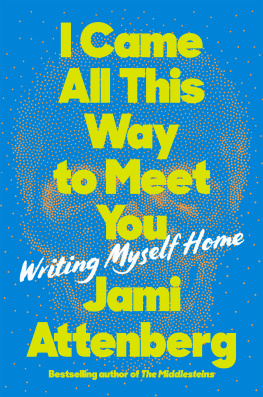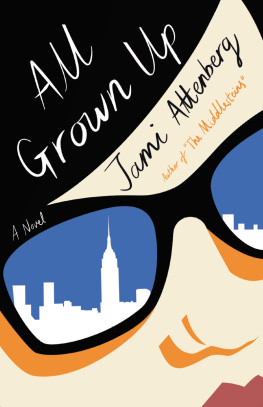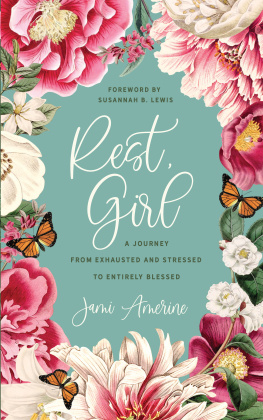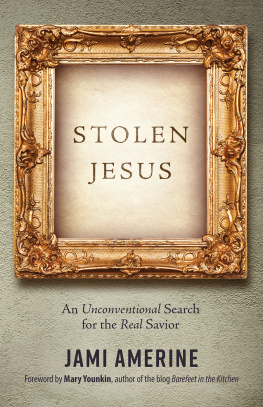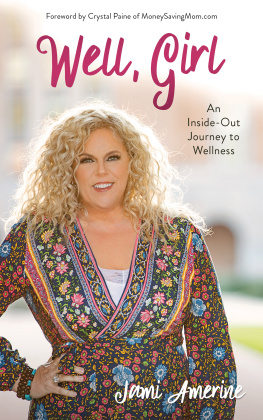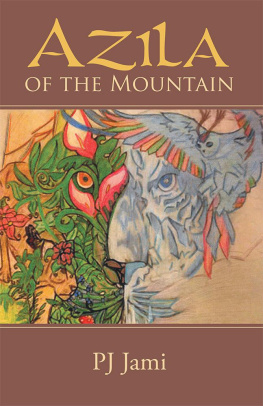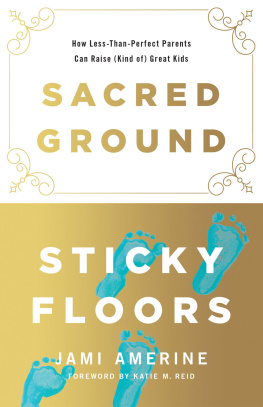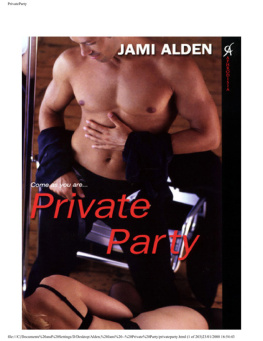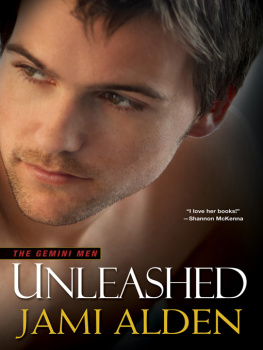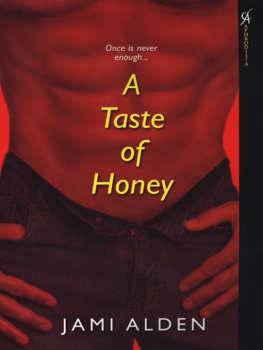Jami Attenberg - I Came All This Way to Meet You
Here you can read online Jami Attenberg - I Came All This Way to Meet You full text of the book (entire story) in english for free. Download pdf and epub, get meaning, cover and reviews about this ebook. year: 2021, publisher: HarperCollins, genre: Art. Description of the work, (preface) as well as reviews are available. Best literature library LitArk.com created for fans of good reading and offers a wide selection of genres:
Romance novel
Science fiction
Adventure
Detective
Science
History
Home and family
Prose
Art
Politics
Computer
Non-fiction
Religion
Business
Children
Humor
Choose a favorite category and find really read worthwhile books. Enjoy immersion in the world of imagination, feel the emotions of the characters or learn something new for yourself, make an fascinating discovery.
- Book:I Came All This Way to Meet You
- Author:
- Publisher:HarperCollins
- Genre:
- Year:2021
- Rating:4 / 5
- Favourites:Add to favourites
- Your mark:
- 80
- 1
- 2
- 3
- 4
- 5
I Came All This Way to Meet You: summary, description and annotation
We offer to read an annotation, description, summary or preface (depends on what the author of the book "I Came All This Way to Meet You" wrote himself). If you haven't found the necessary information about the book — write in the comments, we will try to find it.
I Came All This Way to Meet You — read online for free the complete book (whole text) full work
Below is the text of the book, divided by pages. System saving the place of the last page read, allows you to conveniently read the book "I Came All This Way to Meet You" online for free, without having to search again every time where you left off. Put a bookmark, and you can go to the page where you finished reading at any time.
Font size:
Interval:
Bookmark:
For a long time, I worked day jobs that were different from the one I have now.
For twenty years, I hustled. I ran the cash register at a pharmacy. I counted pills. I sold lottery tickets. I squatted on the ground and counted boxes of enemas during monthly inventory. I shelved books in a college library. I waitressed. I wiped countertops. I took out the trash when my shift was over, and married the ketchup bottles, too, cleaning off the dried, red crust from the tops, which led to a loathing of ketchup, the scent of it, the taste, the texture, for the rest of my life. I flirted for tips. I did shots with strangers. I counted out my money at the end of the night. I worked in a pool hall. I worked in a beach bar. I worked the door at warehouse parties. I checked lists. I did drugs in the bathroom. I sent people on their way.
I temped. I filed. I answered phones. I typed up letters, and then I faxed them across town. I pointed people in the right direction. Down the hall. One flight up. You just missed him. I worked in fifty different offices. All these lives. I took food from the conference room without asking. I replaced women on maternity leave. (Never men.) I lent a hand when they were short-staffed. There was a big mailing. Me, alone, in an empty room, stuffing envelopes. Fingers stung with paper cuts at the end of each day. I worked temp-to-perm and was supposed to feel grateful. If you play your cards right, kid. I never made it to perm.
I worked in an assisted-living facility where every day a resident named George came into my office, often introducing himself to me as if we were meeting for just the first time. He carried a hoe with him, which had belonged to his grandfather, who had brought it with him from Norway decades ago, and George would use it to tend the roses in the garden outside the facility. Sometimes he would tell me the same story about the hoe, too. George was sweet, and he was a gentleman.
I learned a lot about people, and how to be in the world.
I worked for a start-up, where my job was, essentially, to type really fast all day long; I talked to no one for months, I just typed. The next job, I signed people into conference rooms and assisted with their meetings and listened to them talk about their important jobs while they ignored my existence. I smiled when I didnt feel like it. I tried another job and another job and another job, always searching for a place I could call home. I was creative and I was curious and there was a propulsiveness to my lifeI was completely engaged in forward motionyet I had no specific direction. A problem I had. Figuring out the direction.
I spell-checked. I sent emails. I did math. I copyedited. They would find out I could write and then ask me to write something and it would only be a paragraph or two but it made me feel important and special and necessary and like I wasnt totally wasting my life, even if I was writing something that wasnt interesting at all, a forgettable arrangement of words, a decoration on a page, the babys breath of corporate America.
I found a way into working on the internet, which was then the new frontier. I wrote, I produced, plenty of it garbage. I learned what code was. I learned what keywords were. I learned how to structure a website. Information architecture. I liked the idea of that: organizing information. I learned how to write short and snappy things. I worked for advertising agencies, lots of themit felt like every agency in town. I watched things I wrote finally exist in the world, with the recognition that no one would ever know it came from me. I was detached from the thing I was making. I had no ownership of it.
On the side, I started writing personal things on the internet. Blog posts, little essays here and there. I began to tune the sound of my voice.
I argued with my coworkers about things that seemed important at the time. I asked for raises and got them. I quit. I got fired. A few times I didnt get jobs because people read something I had written on the internet. I had jobs where I was taken less seriously or my opinions dismissed entirely for being a woman. I have been told I am difficult. I am difficult in the sense that I am not easy, but fuck easy.
I have been harassed at work, but seriously, who hasnt?
I worked for a cable network on websites for critically acclaimed television shows, all of which were created by men. It was the best job I ever had besides the one I have now. I watched how everyone ran around making these shows happenwhat a massive amount of work went into their production; such brilliant people worked on them!but all of the credit was given to the shows creators, their creativity, their genius. They had come up with the ideas. They had ownership. The rest of us were there to make their vision come to life. We served their ideas.
Eventually I thought: What about my ideas? When do I own them?
And once I realized that, I couldnt stop thinking about it. I could not stay where I was any longer.
The solution was to write my way out of the problem. That meant writing early in the morning, late at night, and on weekends. It meant carving out time, claiming it for myself. I thought: I will write this first book, and then maybe another after that. This is the thing I want to do.
This desire informed life choices I made, paths I took, and paths I rejected. Everything got easier, in a way, once I realized this was what I wanted, even as things got much, much harder. I had decided to operate in service of my ideas.
There are plenty of reasons why I write. This is just one of them. The sense that I want to own something, own my work, own my creativity, own my name. It is perhaps not the purest reason, not truest of heart, for there is some ego attached to it. But it is real.
I own these words. I own these ideas. Here is my book.
I am the daughter of a motherless mother. That sounds more dramatic than it actually is, though I suppose it had a gothic romantic quality to me when I was a child. It was sad, that my mothers mother had died so young, but it was also a mystery, and mysteries were interesting. I knew so little about the woman who would have been my grandmother; she passed away when my mother was eleven, and had been sick for five years before her death, so my mother had only known her in a certain way, and only up to a certain point. There was a palpable absence that existed in our lives, the not knowing of this person, having so few stories to pass around fondly. She was mentioned, she was discussed on occasion, certainly, but mainly the faint idea of her existed in the background.
Even when sadness is not stated, of course it can be deeply felt. A shroud of sadness was how I had thought of it, described it to people as I got older. My mother was not an outwardly unhappy person: to this day she is cheerful, energetic, and congenial. She has a crisp sense of humor. Big brown eyes, a wry smile. She likes to play team sports, even in retirement. You have to drag her off that pickleball court. People like her. I get asked all the time how I can write about such fucked-up families when my mother is so obviously a nice person.
And yet, I always had an awareness of tragedy and loss in my youtheven though I had lost nothing myself. An attraction to that which was absent. A sketch, an outline, never fully formed, but still, it existed as an idea. Filling in the imaginary blanks with information I did not have but found I could invent quite easily. A thing we do as writers. If we just give ourselves permission. But also, there was something about simply feeling the sense of the void. It wasnt just one less nana to tell me they loved me, although wouldnt that have been pleasant to hear? The tragedy and loss had nothing to do with me: it was explicitly the absence of her in my mothers life. A woman, missed. And with that, the things she never had a chance to learn from her mother.
Font size:
Interval:
Bookmark:
Similar books «I Came All This Way to Meet You»
Look at similar books to I Came All This Way to Meet You. We have selected literature similar in name and meaning in the hope of providing readers with more options to find new, interesting, not yet read works.
Discussion, reviews of the book I Came All This Way to Meet You and just readers' own opinions. Leave your comments, write what you think about the work, its meaning or the main characters. Specify what exactly you liked and what you didn't like, and why you think so.

